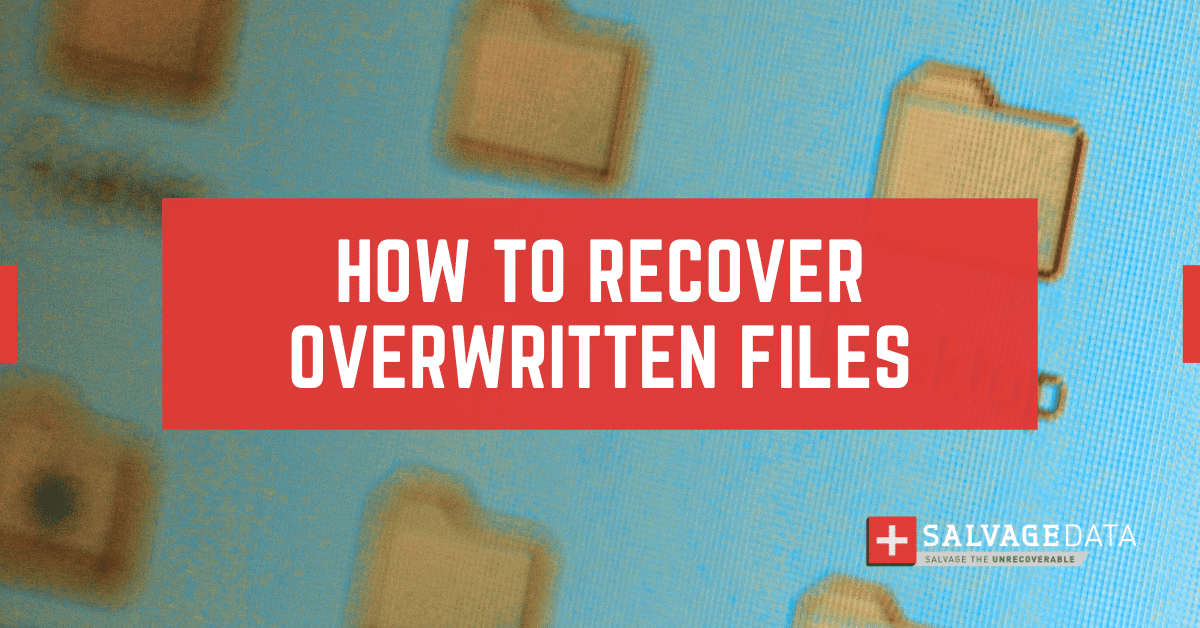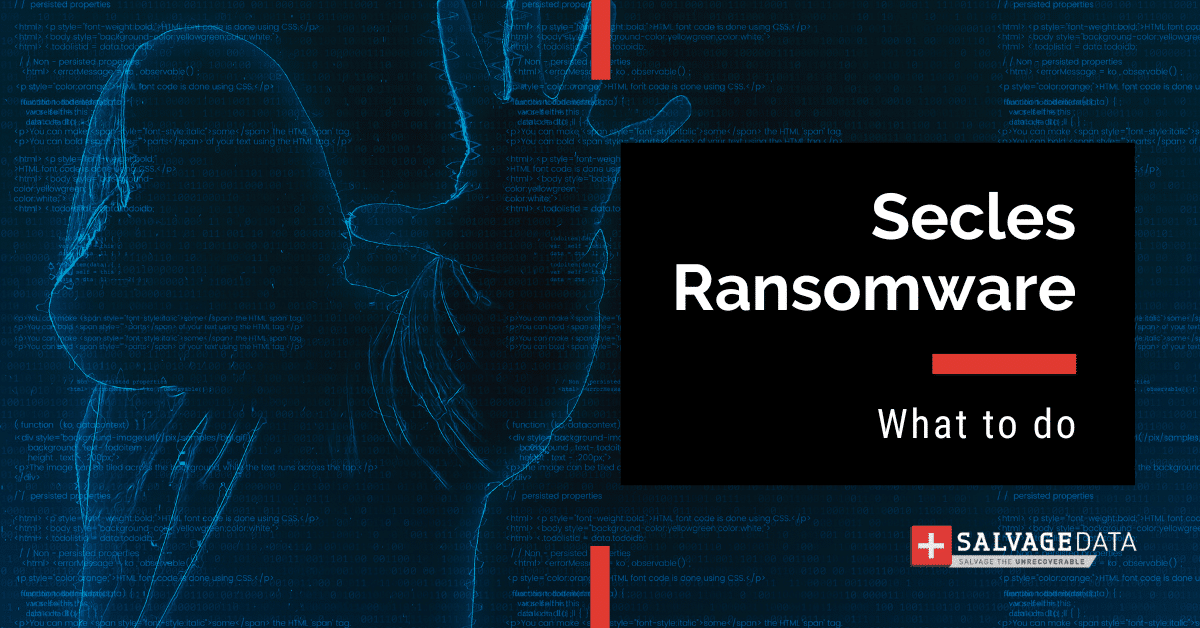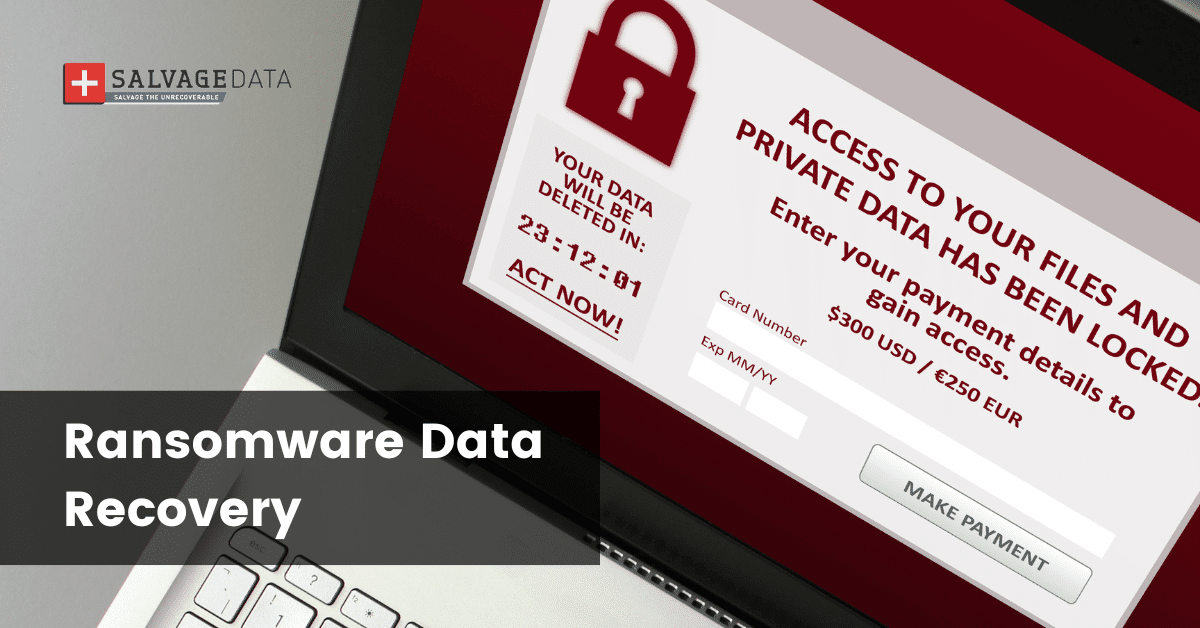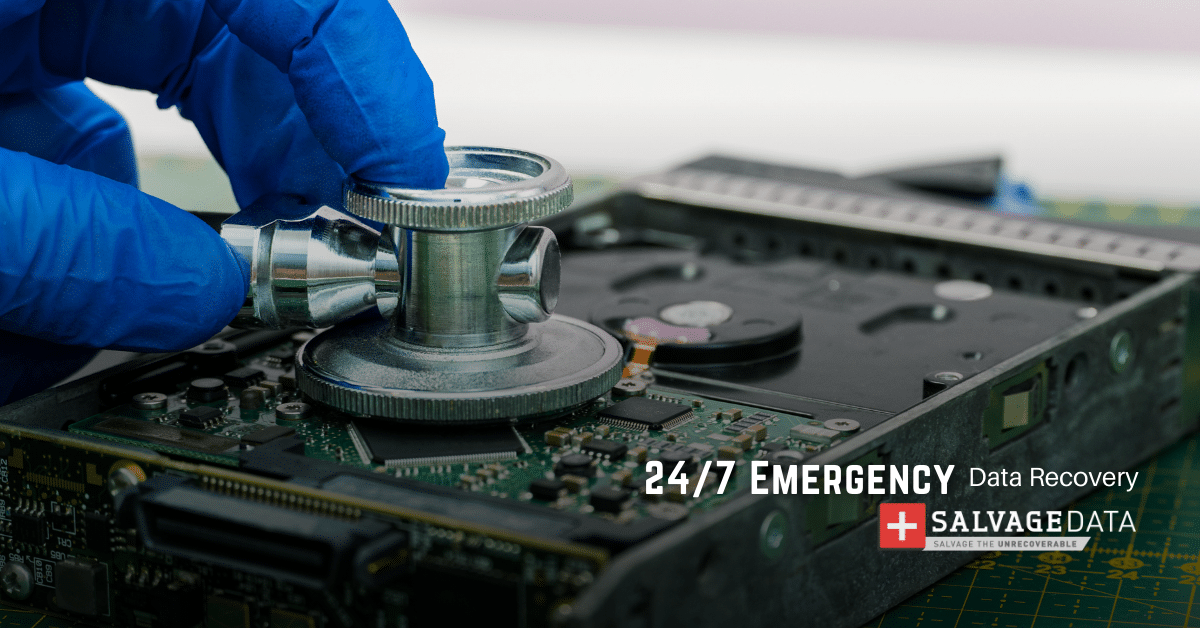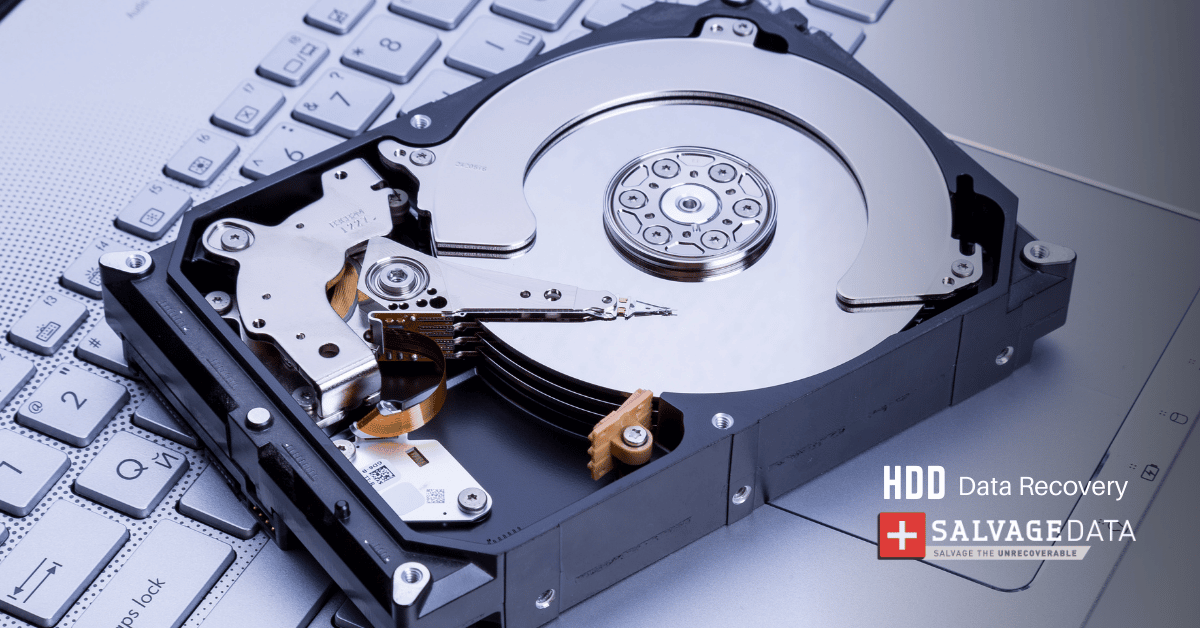Recent Articles
How To Recover Overwritten Files
The Snowflake Data Breach: A Comprehensive Overview
Mac Not Recognizing External Hard Drive: Quick Fix Solutions
How Multi-Cloud Backup Solutions Can Prevent Data Disasters
Capibara Ransomware: What is it & How to Remove
What Should a Company Do After a Data Breach: The Ticketmaster Incident
Secles Ransomware: Removal Guide
What To Do When Your Chromebook Freezes
How to Create Hyper-V Backup
What Is The Best Data Recovery Software For PC

I think there's an issue with my storage device, but I'm not sure Start a free evaluation →
I need help getting my data back right now Call now (800) 972-3282
What is ECLR Ransomware?
ECLR is a type of malware that encrypts your files and demands a ransom payment to decrypt and regain access to them.
ECLR Ransomware spreads through email attachments, malicious websites, and compromised software downloads.
How does ECLR Ransomware work?
ECLR uses the AES-256 encryption algorithm to encrypt your files. Once it has encrypted your files, it will append the “.eclr” extension to them.
It will then create a text file named “HOW_TO_DECRYPT_YOUR_FILES.txt” and drop it in each folder that contains encrypted files. This text file contains instructions on how to decrypt your files and contact the attackers for payment.
History
ECLR Ransomware was first discovered in June 2019. It is a variant of the EDA2 Ransomware.
What was the biggest ECLR attack?
The ECLR Ransomware attack that caused the most damage occurred on June 10, 2019. This attack encrypted the files of more than 500 victims in over 100 countries.
How much is the ransom?
The ECLR Ransomware ransom is typically 0.5 Bitcoin. However, the amount demanded may vary depending on the individual case.
What types of files does ECLR encrypt?
ECLR Ransomware primarily targets files with the following extensions: .txt, .doc, .docx, .xls, .xlsx, .ppt, .pptx, .pdf, .jpg, and .png. However, it can also encrypt other types of files.
How can I avoid getting ECLR Ransomware?
There are several things you can do to avoid getting ECLR Ransomware:
– Keep your operating system and software up to date
– Use a reputable antivirus program
– Don’t open email attachments from unknown senders
– Don’t click on links in emails from unknown senders
– Don’t download programs from untrustworthy websites
If you think you might have ECLR Ransomware, what should you do?
The first thing you should do is disconnect your computer from the internet. This will prevent the ransomware from encrypting any more files. Do not pay the ransom. There is no guarantee that you will get your files back even if you do pay. Instead, try using a data recovery program to see if you can recover your files. If you can’t, then you should consider restoring your files from a backup.
Use a recovery software
You can always try data recovery software to restore your data. We built SalvageData data recovery software to help you.
How to remove ECLR Ransomware?
If attackers have infected you with ECLR Ransomware, you can use a reputable anti-malware program to remove it from your computer.
Is there a public decryption tool available for ECLR Ransomware?
At this time, there is no public decryption tool available for ECLR Ransomware.
Contact a data recovery service
If you can’t remove ECLR Ransomware or decrypt your files, you can contact a data recovery service.
SalvageData is a data recovery service that can help you recover your ECLR Ransomware encrypted files. Our team of experts has experience dealing with ECLR Ransomware and can help you get your files back.
ECLR Ransomware is a serious threat to your computer and your data. This ransomware should be removed from your computer as soon as possible. Contact SalvageData experts right now to see how we can help you recover your files.

